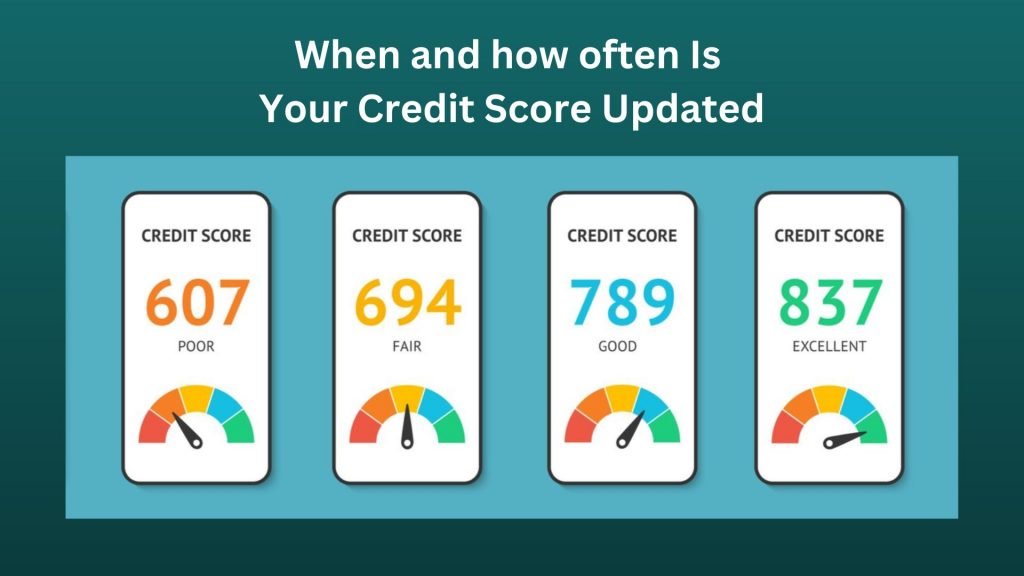Before applying for a loan to buy a new house or an automobile, you might be checking your credit score daily to see where it stands. However, just because you check it frequently does not guarantee an update.
A credit score is a three-digit figure that ranges from 300 to 850 and is used to determine your credit risk, or how likely you are to make on-time payments on your debts. Credit scores do not have set values. They will alter over time in accordance with your financial actions and other data submitted to different consumer reporting agencies.
How often your credit score updates
As information on your credit report is updated, your credit score fluctuates over time. Only a few items that appear on your credit report and have an impact on your credit score are new balance amounts, pay off credit cards, and account openings.
Your credit score should typically update once a month, but if you have several financial products, it can change more frequently. Your score can update each time one of your creditors transmits data to one of the three major credit bureaus, Experian, Equifax, or TransUnion. As a result, your credit score may vary depending on whether your creditor sends updated information to Experian today, Equifax next week, or TransUnion the week after.
When you check multiple credit score providers that collaborate with several credit bureaus, your credit score might also change. The credit bureaus may receive information at different times during the month, as was mentioned above. As a result, if you check your scores with Experian and TransUnion today, they might differ if one has information that the other doesn’t.
Methods for Keeping and Raising Credit Scores
Keep in mind that some fluctuation in your credit ratings is natural. Additionally, over time, credit ratings might vary dramatically. However, by consistently exhibiting sound financial practices, you can preserve decent credit scores and even raise them.
You may maintain and raise your credit ratings in the following ways:
- Punctually pay your expenses. Your payment history plays a significant role in determining your credit scores. Therefore, making up any late or missed payments, for instance pay utilities bills late, can be a crucial step in enhancing your credit.
- Try to settle all of your balances. You should always endeavor to pay as much of your entire credit card bill as you can. You may keep your credit utilization ratio low and stay well below your credit limitations by paying off your balance at the end of each billing cycle.
- Make only the necessary credit requests. Try to only request credit when you really need it. Why? According to the CFPB, if you apply for a lot of credit in a short amount of time, it may seem to lenders that your economic circumstances have changed badly.
How to get a free credit score check
You can check your credit score for free using dozens of resources; however, the scores you get differ between a FICO Score and a VantageScore. FICO Scores are used in the vast majority (90%) of loan decisions, despite the fact that both are useful for understanding the important aspects that affect your credit history.
Your credit card issuer is the quickest and easiest way to get a free copy of your credit score. Many card issuers offer free access to their cardholders’ VantageScore or FICO Score. Consider free tools in addition to your bank.
The Bottom Line
Despite the fact that adjustments to your credit score typically happen at least once a month, this frequency may change based on your lenders and particular financial circumstances. Your credit score will likely fluctuate over time based on your financial actions. Each lender must independently determine whether to report information, when to do so, and to which CRAs, if any.
To see any changes, make sure to get a fresh copy of your credit score.
